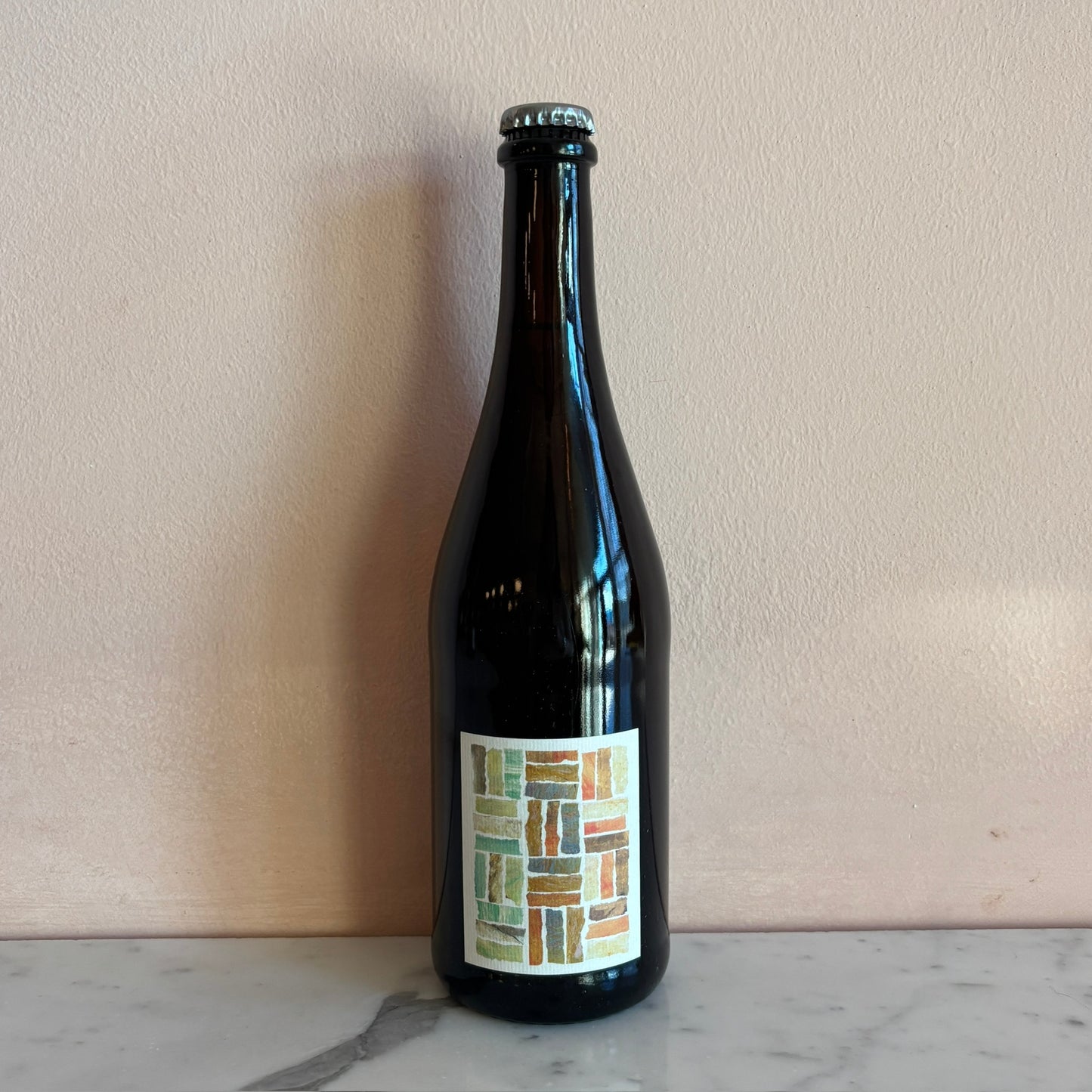Patois
Patois "Pastiche" Grape Cider, Charlottesville, Virginia 2022
Patois "Pastiche" Grape Cider, Charlottesville, Virginia 2022
In stock
Couldn't load pickup availability
FROM PATOIS:
THE CIDER: 38% Chardonel from M&R Vineyard in Shenandoah County. Silt and clay loams of weathered limestone, 1100’. 37% Seyval Blanc from Lovingston Vineyard in Nelson County. Clay loam of weathered granite and gneiss, 650’. 19% Chardonel from Zephaniah Vineyard in Loudoun County. Silt loam of greenstone, 500’. 6% Vidal Blanc from Bluestone Vineyard in Rockingham County. Silt loam of weathered limestone, 1100’.
Mirroring our experience with the wide harvest window of cidermaking, and because of our limited infrastructure curtailing the amount of fruit we can process in one day, we made several partial to one ton picks from a variety of sites from late August to mid September. The result is a long, continuous fermentation that reached our bottling target in early October. One of us climbs into the vertical basket press to foot stomp the whole cluster grapes as the other tosses them in. The fruit is then very slowly pressed once, with the whole cycle taking ten to twelve hours. Juice settles overnight. Press fractions were re-combined as we feel the hybrids need their phenolics and our manual pressing is less extractive. Fermentation takes place in a mix of neutral French oak and steel tanks, racking together to finish in the bottle. Aged on lees for a minimum of 19 months before disgorgement (specific date is hand stamped on back label).
THE PRODUCER: Patois is Patrick Collins and Danielle LeCompte. Our focus is balance: How do untended apple trees maintain their ecological equilibrium, and how can an orchard mirror this dynamic? How will several successions of microorganisms collectively transform the fruit? How do we align ourselves and our work with the interconnecting cycles of nature? Can two people do this?
We don’t own land because our scale cannot support those costs. Foraging allows us to utilize existing (if scattered) noncommercial fruit of supreme quality. These trees hold both the historical lessons of past plantings - sites proven by survival - and the genetic renewal through seedlings for future resilience. We observe these trees and attempt to restore them where we have regular access. We may also seek to propagate them through both grafting and sprouting seeds should landowners allow. Sometimes we imagine our own orchard of our favorite found varieties interspersed with vines; sometimes we think no single Shangri-La will ever approach the complexity of so many unique inputs assembled by a century of chance.
We work fairly oxidatively in the cellar, due partly to aesthetic aims and partly to our minimal infrastructure. Everything is done by hand on a one or two person scale. Sparkling wine can be constrained by technique and fixed parameters, but we try to think creatively to achieve our goals with only fruit and time. While the ciders and wines will continue to evolve in the bottle upon release, they are not precious and are meant to be enjoyed. We hope to demonstrate that conventionally undervalued fruit is capable of producing delicious and complex wines when treated with intention and care.


